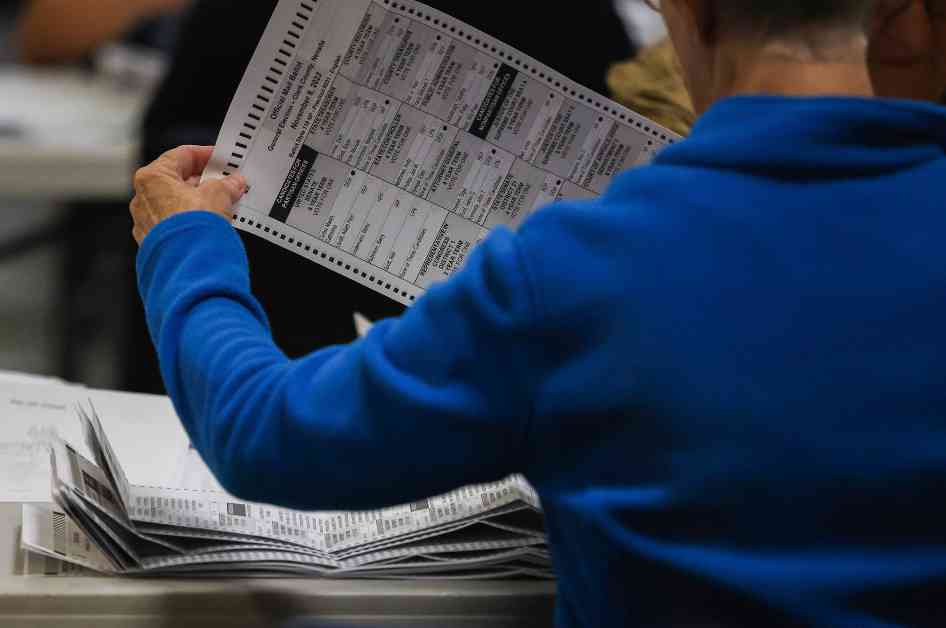Nevada Ballot Confusion: Examining the Impact of Question 3
Nevada’s ballots have long been a source of confusion and complexity for voters due to the extensive list of pseudonymous officials that must be elected rather than appointed. The recent anti-Question 3 mailer from the Nevada State Democratic Party highlighted the challenges posed by this ballot measure, describing it as “complicated, unfair, and bad for Nevada” because it “makes voting complicated.”
Question 3 has been a topic of discussion in Nevada, with some individuals expressing enthusiasm for the ranked-choice voting provisions included in the measure. While some may see the potential benefits of open primaries, it’s essential to recognize the potential drawbacks of top-two open primaries, as seen in states like California and Washington.
One significant weakness of top-two open primaries is the possibility of partisan voters splitting their support among several candidates from the same party. This scenario can result in the minority party securing the top two spots in a heavily contested primary, even in a predominantly Republican district like Congressional District 2.
The concept of ranked-choice voting offers a solution to this issue by allowing voters to support multiple candidates on a ballot. This voting system ensures that the winning candidate in any election will be someone who garners support from a majority of voters, addressing the challenges posed by multiple candidates and potential vote-splitting scenarios.
Addressing Ballot Complexity in Nevada
The complexity of Nevada’s ballots extends beyond the challenges posed by Question 3. With a lengthy list of elected offices and propositions to consider, voters are often overwhelmed by the sheer volume of choices they must make during elections.
From presidential and congressional races to local school board trustees and ballot initiatives, the array of options presented to voters can be daunting. While some races are easier to research and decide upon, such as federal and legislative positions, others like judicial offices and school board trustees may leave voters feeling uninformed and uncertain.
Judicial positions, in particular, have been a point of contention, with many questioning the need for these officials to be elected rather than appointed. The lack of information available to voters about judicial candidates and their qualifications can hinder the accountability and effectiveness of the judicial branch.
Exploring Alternatives for Accountability
As Nevada grapples with the complexities of its ballots and the challenges of holding various officials accountable, there is a growing call for alternative approaches to governance. The current system of electing judges, regents, and school board trustees may not always yield the best results in terms of accountability and effectiveness.
Appointing judges and regents, for example, could introduce a level of professionalism and oversight that is lacking in the current system. By holding these officials directly accountable to political leadership, voters can have confidence that qualified individuals are serving in these critical roles.
Similarly, the election of school board trustees has raised concerns about the level of accountability and competence within these bodies. Appointing trustees instead of electing them could help mitigate issues of chronic dysfunction and incompetence that have plagued some school boards in Nevada.
In conclusion, while Question 3 and other ballot measures aim to address certain aspects of Nevada’s electoral system, the larger issue of ballot complexity and the need for accountability in governance remain pressing concerns. By exploring alternatives to the current system of electing officials, Nevada can work towards a more efficient and effective electoral process.





